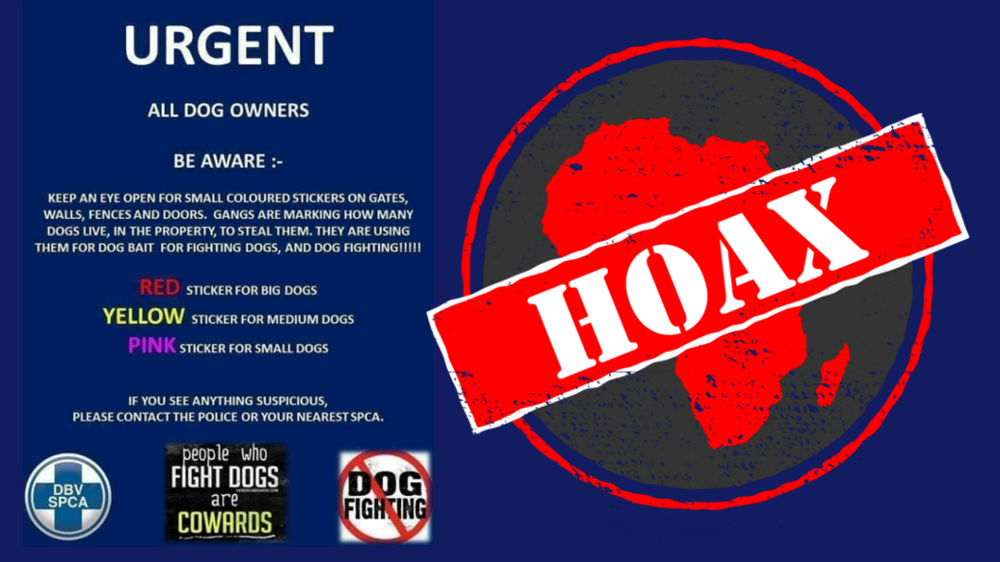‘No indication’ SA thieves are marking houses with dogs to snatch
A poster warning South Africans that criminals are using stickers to mark houses from which dogs can be stolen has been doing the rounds on social media.

It was most recently shared on the CLAW (Community Led Animal Welfare) Facebook page, but the post has since been removed.
Dog-snatchers supposedly use a red sticker to mark houses with big dogs, yellow for medium dogs and pink for small dogs.
The logo of the SPCA (Society for the Prevention of Cruelty to Animals) as well as stickers reading “People who fight dogs are cowards” and “No to dog fighting” feature prominently.
Africa Check got in touch with the National Council of SPCAs (NSPCA). Spokesman Christine Kuch said there is “no indication of this happening in South Africa” and added that “the linking of the SPCA name to the poster is misleading and unauthorised”.
A fact-check by Snopes.com suggests this “warning” originated in the Perth, Australia, in February 2013.
This is not to say that the theft of dogs does not occur in South Africa, Kuch said. “We urge all owners to take responsible steps including microchip identification of your animals.”
The Alberton SPCA recommended keeping dogs indoors at night and away from the street in a comment to the Alberton Record and Comaro Chronicle. The newspaper article questioned the poster’s origin in June 2016.
If you see this image posted anywhere else, please get in touch with us.
Additional reading
https://africacheck.org/reports/are-spiked-oranges-the-latest-hijacking-ploy-in-south-africa
https://africacheck.org/reports/sa-police-dont-help-crying-children-warning-a-hoax/

Add new comment